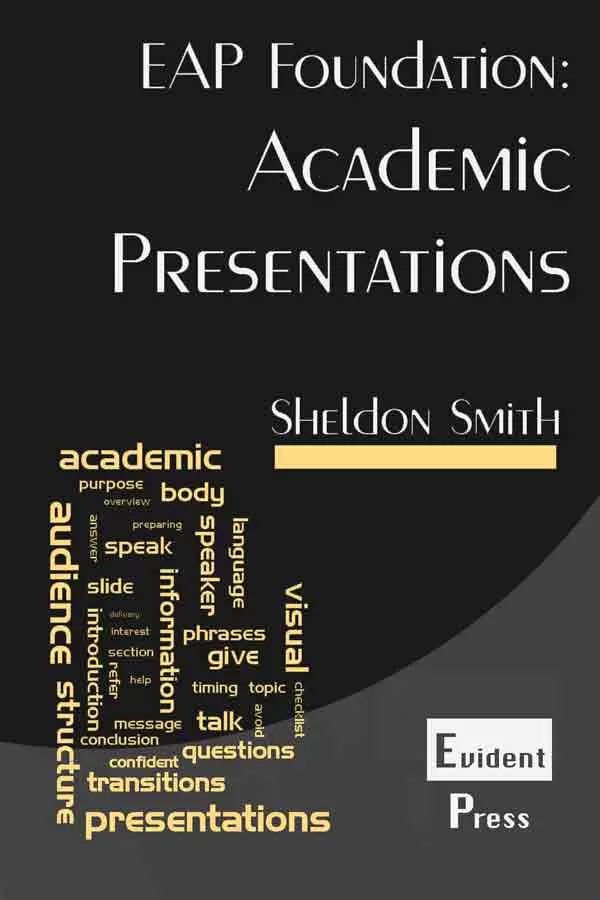Show AWL words on this page.
Show sorted lists of these words.


 







|
This page continues the academic discussion skills section by looking at other useful discussion skills language. This page contains phrases for give suggestions and expressing certainty/uncertainty. There is an example discussion to show how to use some of the phrases.
Giving suggestions
The most common phrases you will use in an academic discussion are those on previous pages, namely asking for or giving opinions, agreeing or disagreeing and asking for clarification. However, there are other useful phrases which you may need, which are considered here. For example, in relation to a situation or problem you may need to give suggestions. Academic language, even in discussions, tends to be fairly tentative, so you may also need to express certainty/uncertainty. Phrases for each of these are shown in the language phrase box.
Giving suggestions
- I suggest that...
- What about...?
- How about...?
- It might be an idea to...
- One option would be to...
- My advice would be to...
- I propose that...
- I think it would be best to...
- I think what we/you/they should do is...
- My feeling is we/you/they should...
- It would be a good idea to...
Expressing certainty/uncertainty
- I’m sure (certain) that...
- There’s no doubt that...
- You may be right.
- It’s likely that...
- It could be that...
- Possibly.
- I think that's debatable.
- I’m not sure (certain) that...
- I'm not so sure about that.
- I don't think I'd say that.
Example discussion
Below is an example discussion on the topic of transportation in a particular city. There are three students involved. This discussion is used throughout the discussion skills section to highlight the phrases in each section. Click on the buttons to the right to highlight different types of phrase.
Giving suggestions |
Expressing uncertainty |
Student A: I think that the transportation here is excellent,
because there are so many different options: bus, underground, taxi. I really love the buses here.
They run many different routes, and the cost is quite reasonable, under one pound for most of the places I go to.
What's your opinion?
Student B: I agree with you. The buses are very convenient and cheap.
And the subway is good too, it's not expensive at all.
Student C: That may be true, but you are only considering the cost. If we look at
how frequent the transport is, then it's not so good. For example I often have to wait twenty or thirty minutes for
a bus when I go to the university. It's really not convenient for me.
Student A: I really don't agree with you.
In my opinion the transport is extremely
convenient. As I just said, the buses run many different routes, so you can get anywhere in the city quite easily.
For instance I can take a bus from where I live to the university, or another one to the train station,
another to the football stadium. They'll all direct and I don't need to change.
Student B: So you mean that convenience in terms of destination is important in a good transportation system?
Student A: Yes, that's certainly one aspect. In terms of the buses, there are also the number of bus stops, which again makes them
very convenient.
Student B: Yes, I see.
Student C: I don't think I'd say that. In some ways, the more stops there are, the less convenient it is.
It makes the journey longer. And how about frequency? Isn't that important too?
Student A: Yes, in my opinion it is. But I don't have any problem with that. I never have to wait more than about ten minutes for a bus, so
in terms of frequency they are very convenient for me.
Student B: That's what I think too. I never have to wait long for a bus either.
It could be that you're just unlucky with where you live.
Student C: I take your point, but I still don't think I agree.
As far as I'm concerned
the transportation needs improving in many aspects, because it's just not good enough.
You mentioned taxis, but they're far too expensive. For example
I once took one to the train station in the evening, and I paid almost ten pounds.
Student A: I'm not so sure about that. Ten pounds to me seems quite reasonable for a taxi fare.
And isn't that just the nature of taxis? That they are more expensive?
Student C: I don't think so. I mean of course they should be more expensive than other forms of transportation, but not so expensive.
Student B: What do you mean by expensive? How much is too much?
Student C: I would say that two or three times as much as other forms of transport is fine, so maybe three pounds for a typical journey. Certainly
not as much as ten pounds!
Student B: I see. So what do suggest to improve the situation? Taxi drivers have to make a living, after all.
Student C: Well, I think what the local council should do is reduce the starting fare for taxis. That would at least make
them more economical for shorter distances. If the fare for longer distances is higher, it would equal things out. Alternatively...
Giving suggestions |
Expressing uncertainty |
Checklist
Below is a checklist for this page. Use it to check your understanding.
| Area | OK? | Notes/comment |
| I know how to give suggestions in an academic discussion | ||
| I know phrases for expressing certainty/uncertainty |



